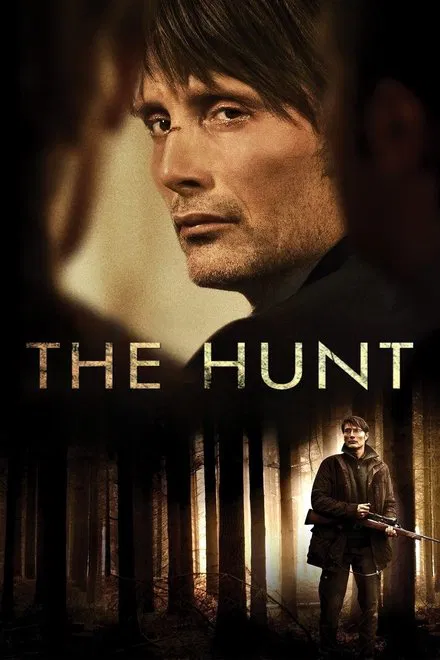
Directed by: Thomas Vinterberg
Starring: Mads Mikkelsen, Thomas Bo Larsen, Annika Wedderkopp, Lasse Fogelstrøm, Susse Wold
🧠 Introduction: Hysteria and the Price of Innocence
The Hunt (2012) is a harrowing portrait of collective paranoia and the destruction wrought by false accusation. Lucas (Mads Mikkelsen), a well-liked kindergarten teacher in a small Danish town, becomes the target of suspicion after a child’s innocent remark spirals into an accusation of abuse. The film’s ending is ambiguous, unsettling, and deeply relevant: can trust ever be restored, and what scars remain after innocence is lost?
❄️ Descent into Isolation: The Collapse of Community
As rumors spread, Lucas is ostracized, attacked, and driven to the brink of despair. Former friends become accusers, and the machinery of justice offers little protection against fear and prejudice. Mikkelsen’s performance anchors the film, capturing the agony of betrayal and the quiet dignity of a man refusing to break.
🏹 The Ritual of Forgiveness: A Fragile Peace
Eventually, the case collapses under the weight of its own contradictions. Lucas is “cleared,” but the damage is irreversible. A year later, during a hunting trip, the community seems to welcome him back. But the peace is fragile, uneasy. In the film’s chilling final scene, Lucas is shot at by an unknown hunter, barely escaping harm. The attacker is never identified, and Lucas’s sense of safety is forever shattered.
🎯 Ending Explained: The Shadow That Remains
The Hunt ends on a note of unresolved tension. Forgiveness, it suggests, is not a single act, but a long, uncertain process. The wounds of suspicion linger, invisible but real. The film’s closing image—a solitary man, forever marked—reminds us that hysteria, once unleashed, can never be fully controlled. Truth, in the end, is as fragile as the bonds that hold us together.